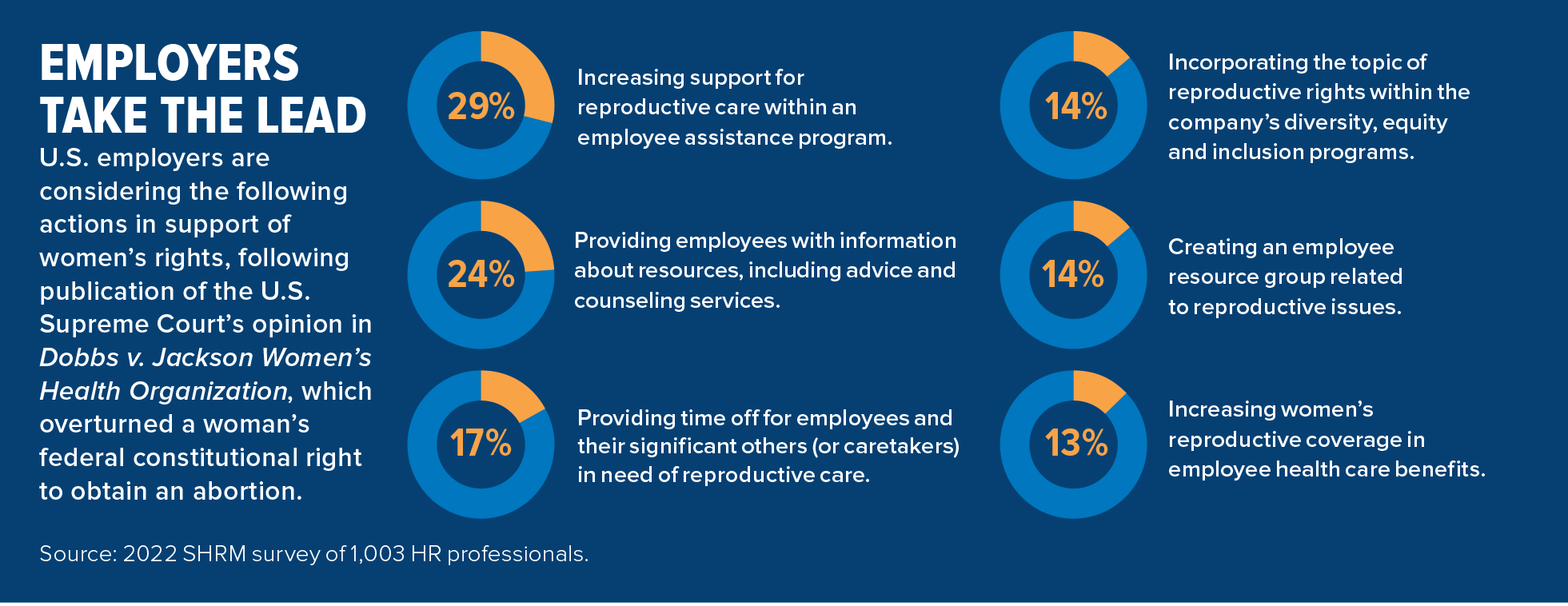
?It seems that Americans today are more attuned to social issues than ever before. Maybe that’s because in the recent past we’ve seen seismic societal developments in science, social justice, gun rights and women’s rights. This last issue has left me pensive in the wake of the U.S. Supreme Court’s decision in Dobbs v. Jackson Women’s Health Organization. Specifically, the decision has solidified for me the existence of a concept that I believe has changed the contours of the world of work: Employers are the new stewards of employee health and well-being.

Historically, the government has looked out for the public interest. Regulations such as the Fair Labor Standards Act and the Family and Medical Leave Act were created by policymaking agencies acting as public watchdogs. Today, as millions of women in the U.S. question their government’s commitment to their well-being, employers have expanded the role they play to support women’s rights. For instance, in a recent survey conducted by the Society for Human Resource Management, a sizable number of employers signaled their intent to expand reproductive care benefits in a show of concern for their workers’ well-being and rights.
This is a marker of employers leading the way like never before. You might not represent organizations like Levi Strauss & Co. or the Walt Disney Co., which have become standard-bearers for promoting employees’ well-being and rights, but regardless of your views on abortion, one thing is clear: Your north star as an HR professional should continue to be serving as the steward for employee health and well-being. This work can take many forms across a wide range of health topics, but employees seek leadership and empathy driven by care and concern. We as employers—and as HR professionals—differentiate our company cultures when we remain grounded in care and concern, even if our course of action is no action at all.

